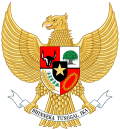| No. | Prosecutors' Offices | Jurisdiction | Office Seat |
|---|
| 1 | Provincial Prosecutor's Office of Aceh Kejaksaan Tinggi Aceh | Aceh | Banda Aceh |
| 2 | Provincial Prosecutor's Office of North Sumatra Kejaksaan Tinggi Sumatera Utara | North Sumatra | Medan |
| 3 | Provincial Prosecutor's Office of Riau Kejaksaan Tinggi Riau | Riau | Pekanbaru |
| 4 | Provincial Prosecutor's Office of West Sumatra Kejaksaan Tinggi Sumatera Barat | West Sumatra | Padang |
| 5 | Provincial Prosecutor's Office of Jambi Kejaksaan Tinggi Jambi | Jambi | Jambi City |
| 6 | Provincial Prosecutor's Office of South Sumatra Kejaksaan Tinggi Sumatera Selatan | South Sumatra | Palembang |
| 7 | Provincial Prosecutor's Office of Bengkulu Kejaksaan Tinggi Bengkulu | Bengkulu | Bengkulu City |
| 8 | Provincial Prosecutor's Office of Lampung Kejaksaan Tinggi Lampung | Lampung | Bandar Lampung |
| 9 | Provincial Prosecutor's Office of Bangka-Belitung Kejaksaan Tinggi Bangka-Belitung | Bangka Belitung Islands | Pangkal Pinang |
| 10 | Provincial Prosecutor's Office of Riau Islands Kejaksaan Tinggi Kepulauan Riau | Riau Islands | Tanjung Pinang |
| 11 | Provincial Prosecutor's Office of Banten Kejaksaan Tinggi Banten | Banten | Serang |
| 12 | Provincial Prosecutor's Office of Jakarta Kejaksaan Tinggi Daerah Khusus Ibukota Jakarta | Jakarta | South Jakarta |
| 13 | Provincial Prosecutor's Office of West Java Kejaksaan Tinggi Jawa Barat | West Java | Bandung |
| 14 | Provincial Prosecutor's Office of Central Java Kejaksaan Tinggi Jawa Tengah | Central Java | Semarang |
| 15 | Provincial Prosecutor's Office of Yogyakarta Kejaksaan Tinggi Daerah Istimewa Yogyakarta | Special Region of Yogyakarta | Yogyakarta City |
| 16 | Provincial Prosecutor's Office of East Java Kejaksaan Tinggi Jawa Timur | East Java | Surabaya |
| 17 | Provincial Prosecutor's Office of Bali Kejaksaan Tinggi Bali | Bali | Denpasar |
| 18 | Provincial Prosecutor's Office of West Nusa Tenggara Kejaksaan Tinggi Nusa Tenggara Barat | West Nusa Tenggara | Mataram |
| 19 | Provincial Prosecutor's Office of East Nusa Tenggara Kejaksaan Tinggi Nusa Tenggara Timur | East Nusa Tenggara | Kupang |
| 20 | Provincial Prosecutor's Office of West Kalimantan Kejaksaan Tinggi Kalimantan Barat | West Kalimantan | Pontianak |
| 21 | Provincial Prosecutor's Office of Central Kalimantan Kejaksaan Tinggi Kalimantan Tengah | Central Kalimantan | Palangkaraya |
| 22 | Provincial Prosecutor's Office of South Kalimantan Kejaksaan Tinggi Kalimantan Selatan | South Kalimantan | Banjarmasin |
| 23 | Provincial Prosecutor's Office of East Kalimantan Kejaksaan Tinggi Kalimantan Timur | East Kalimantan and North Kalimantan | Samarinda |
| 24 | Provincial Prosecutor's Office of North Sulawesi Kejaksaan Tinggi Sulawesi Utara | North Sulawesi | Manado |
| 25 | Provincial Prosecutor's Office of Gorontalo Kejaksaan Tinggi Gorontalo | Gorontalo | Gorontalo City |
| 26 | Provincial Prosecutor's Office of Central Sulawesi Kejaksaan Tinggi Sulawesi Tengah | Central Sulawesi | Palu |
| 27 | Provincial Prosecutor's Office of West Sulawesi Kejaksaan Tinggi Sulawesi Barat | West Sulawesi | Mamuju |
| 28 | Provincial Prosecutor's Office of South Sulawesi Kejaksaan Tinggi Sulawesi Selatan | South Sulawesi | Makassar |
| 29 | Provincial Prosecutor's Office of Southeast Sulawesi Kejaksaan Tinggi Sulawesi Tenggara | Southeast Sulawesi | Kendari |
| 30 | Provincial Prosecutor's Office of North Maluku Kejaksaan Tinggi Maluku Utara | North Maluku | Ternate |
| 31 | Provincial Prosecutor's Office of Maluku Kejaksaan Tinggi Maluku | Maluku | Ambon |
| 32 | Provincial Prosecutor's Office of West Papua Kejaksaan Tinggi Papua Barat | West Papua | Manokwari |
| 33 | Provincial Prosecutor's Office of Papua Kejaksaan Tinggi Papua | Papua | Jayapura |



